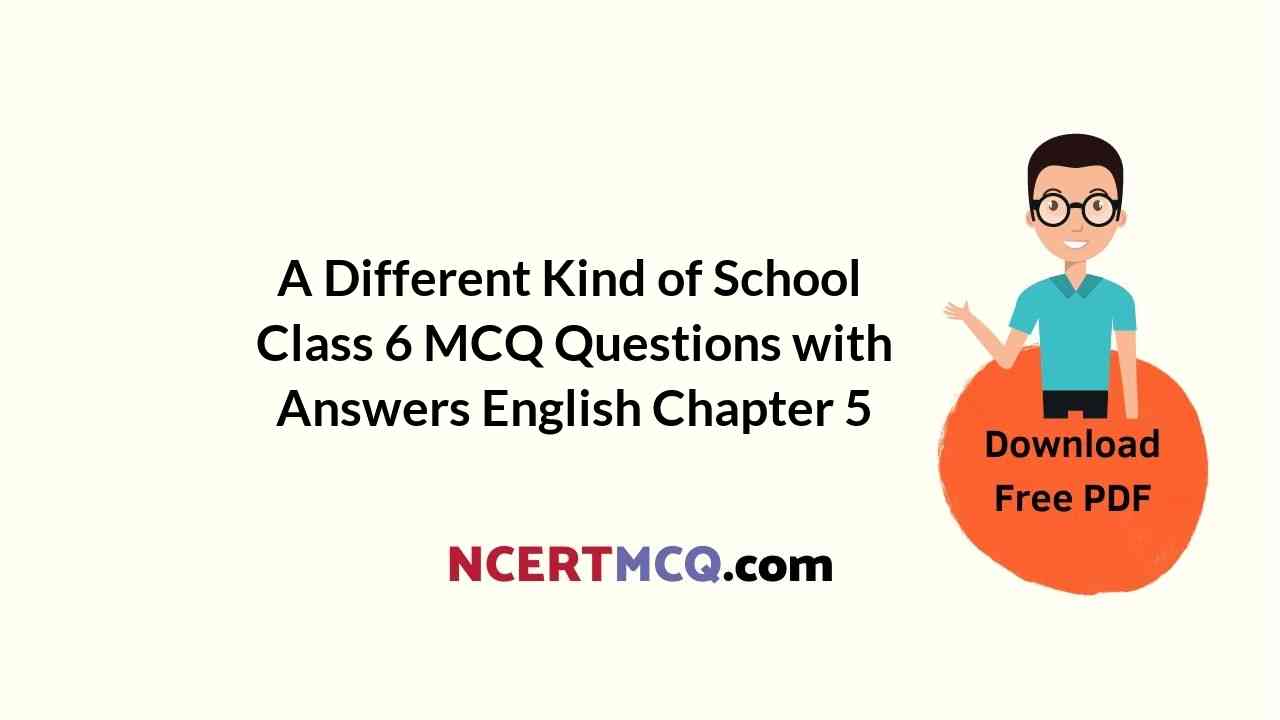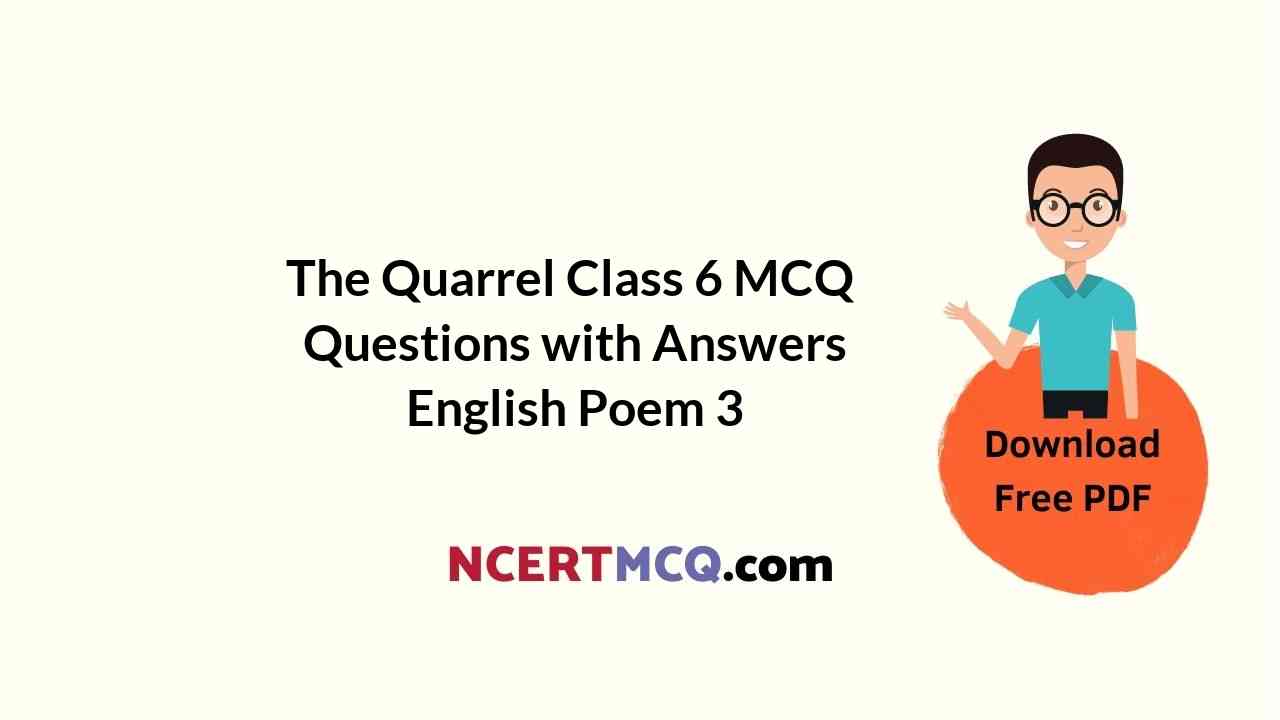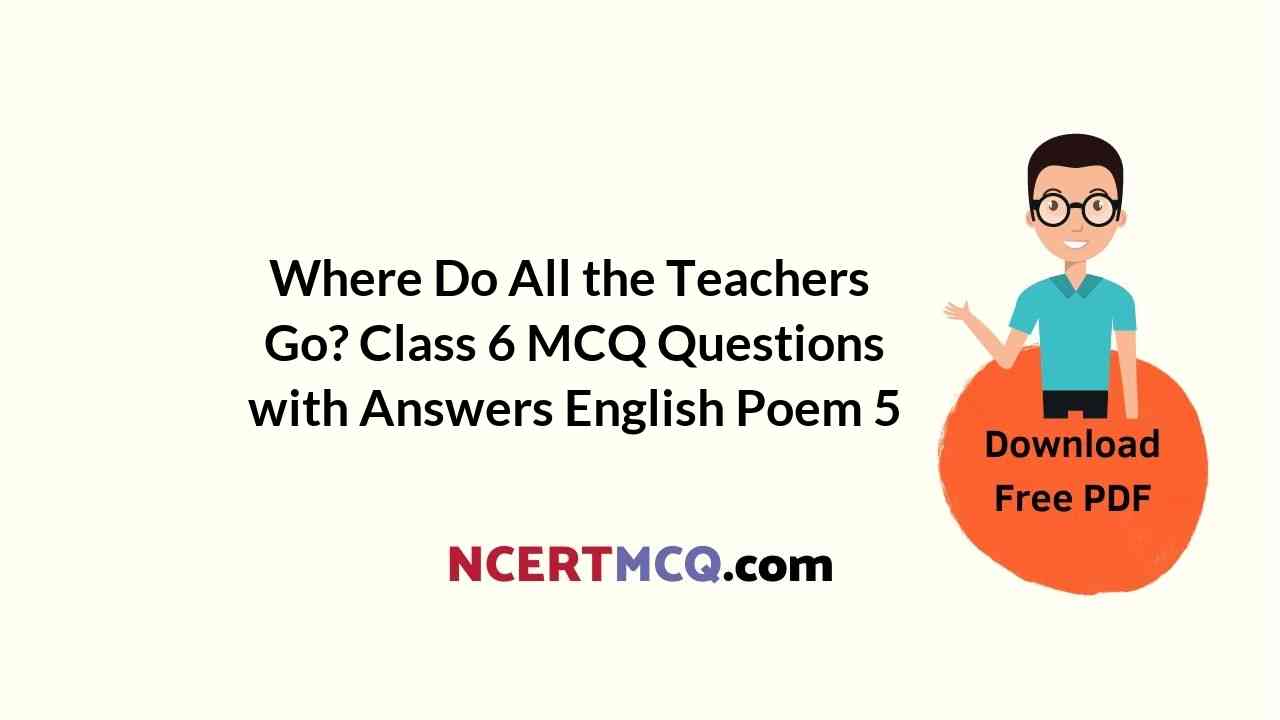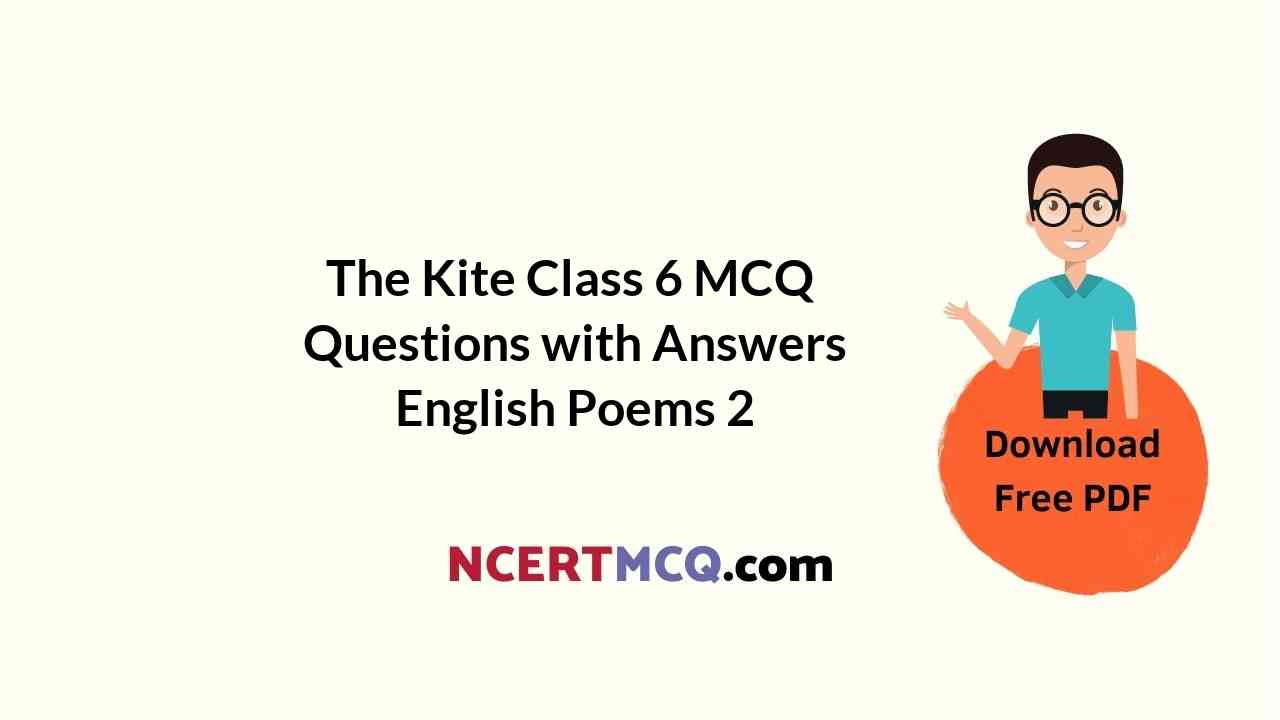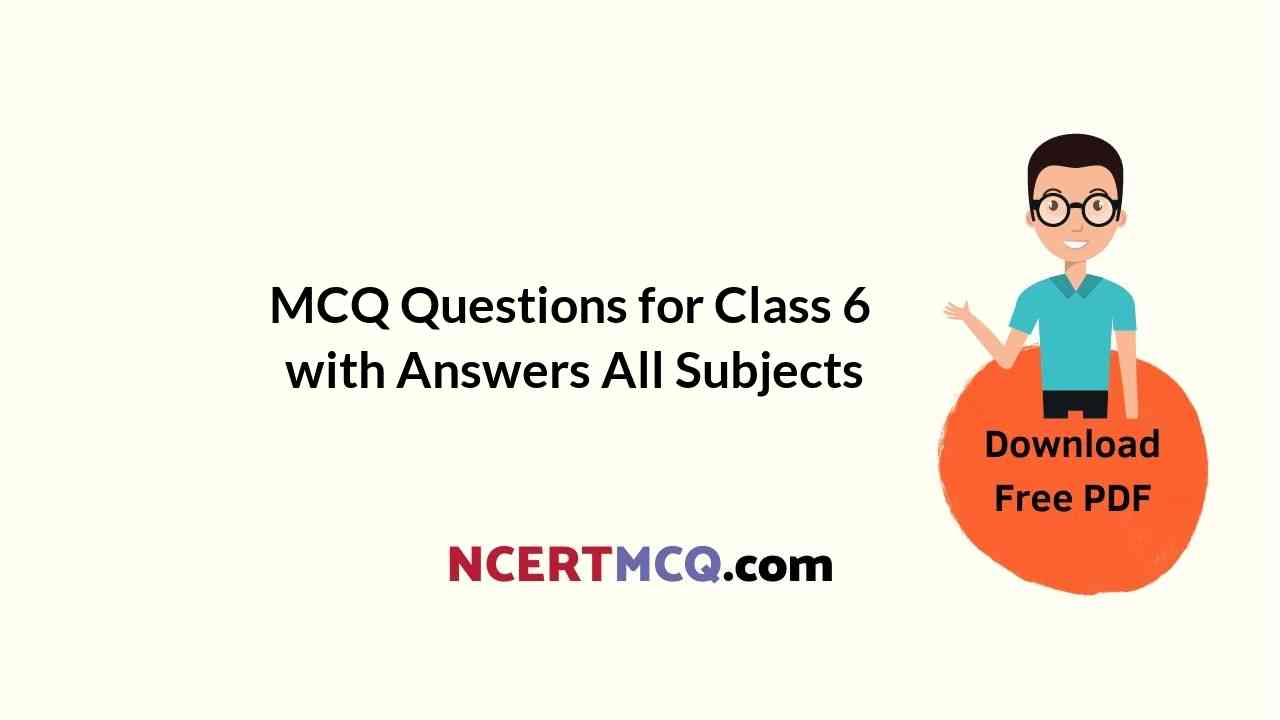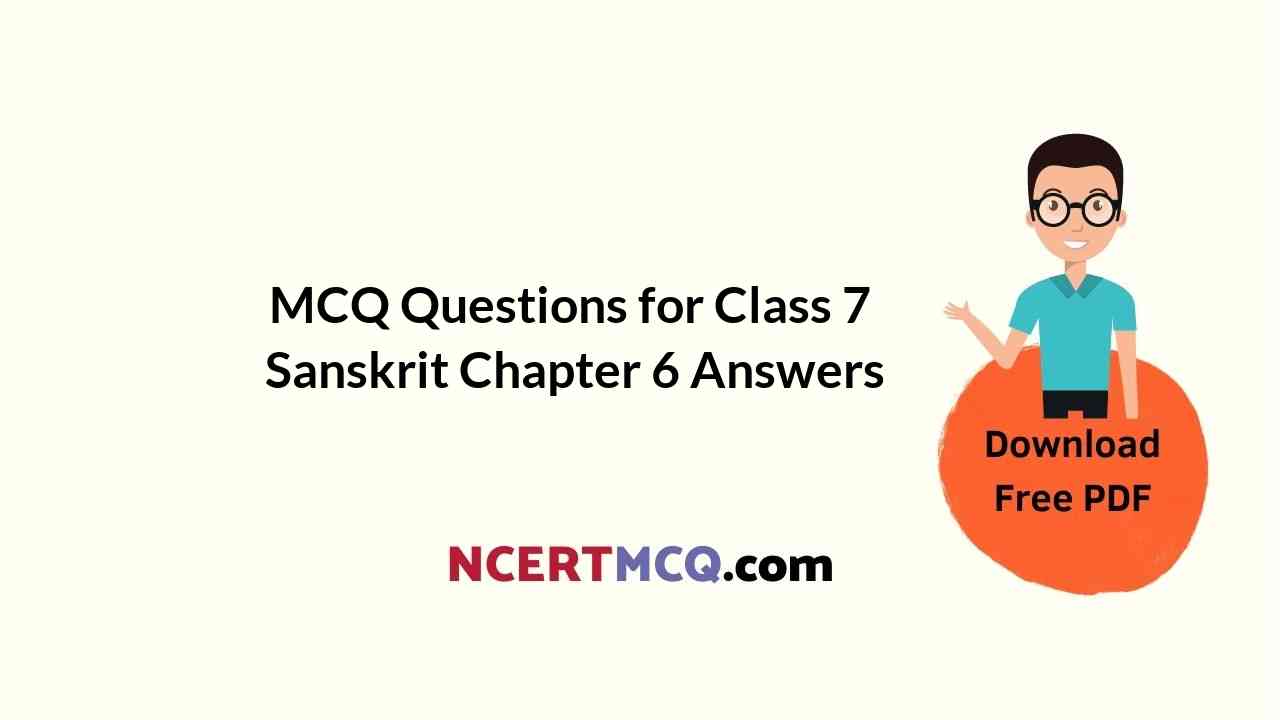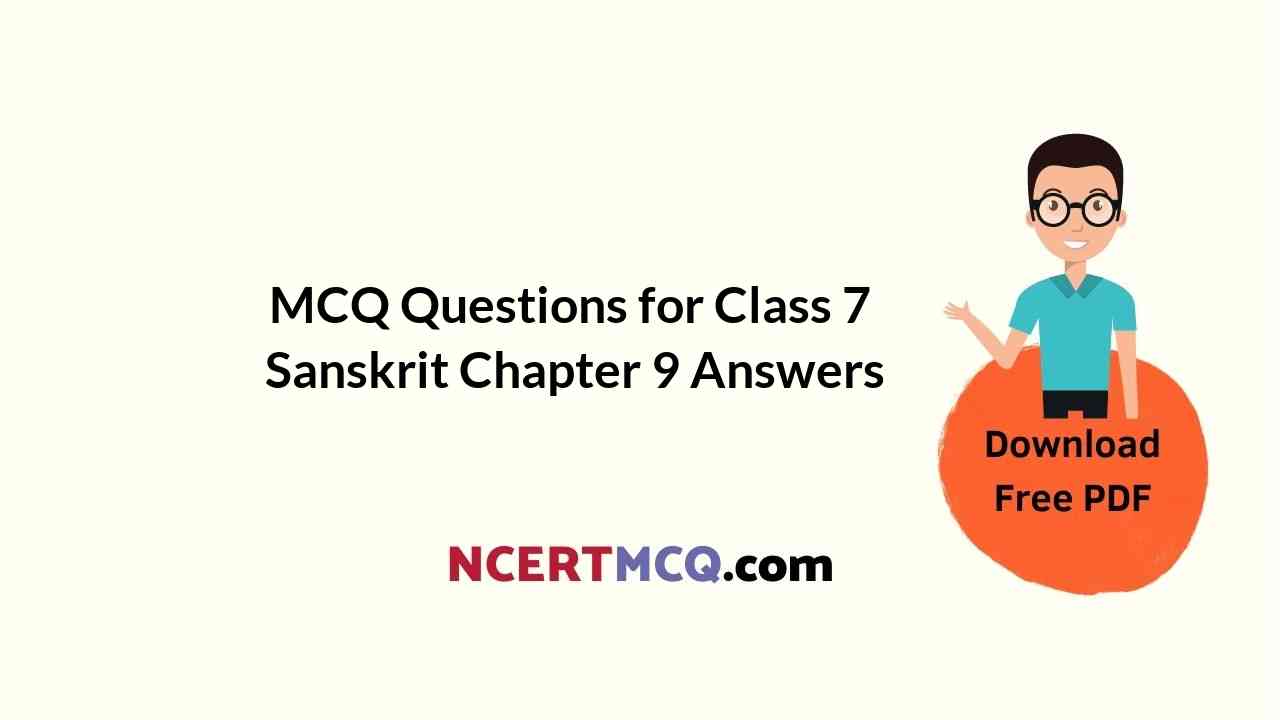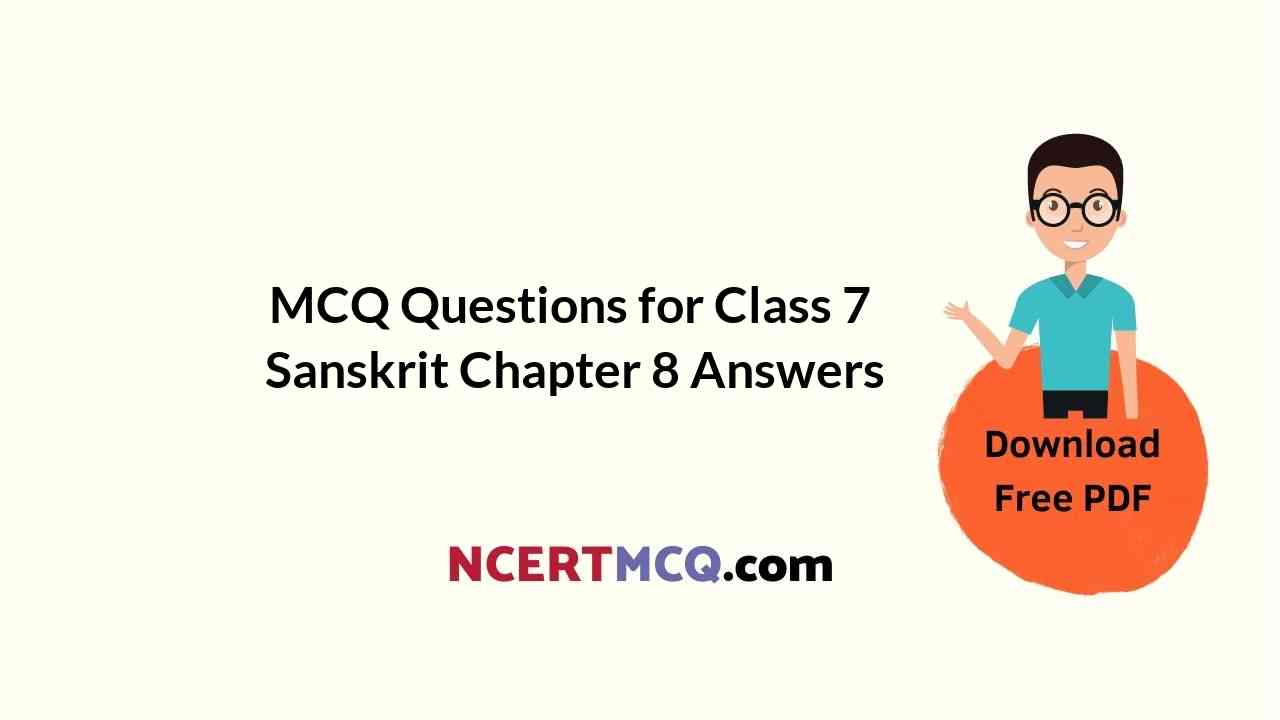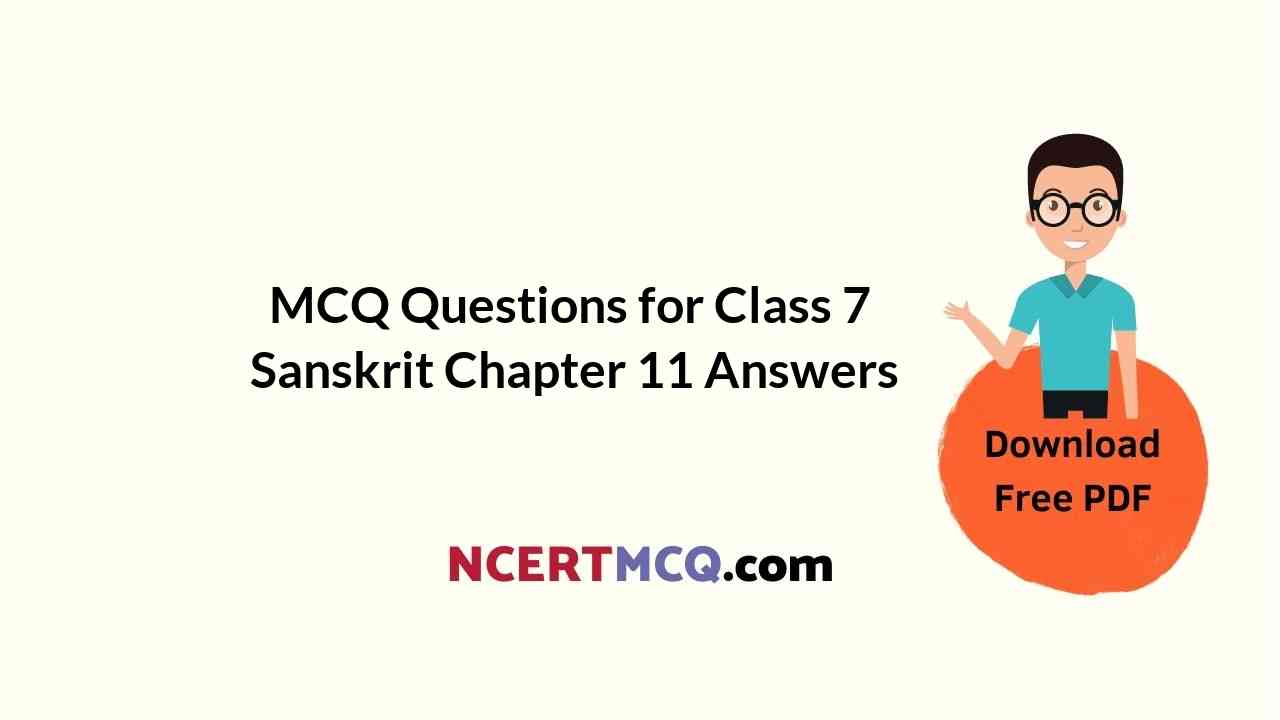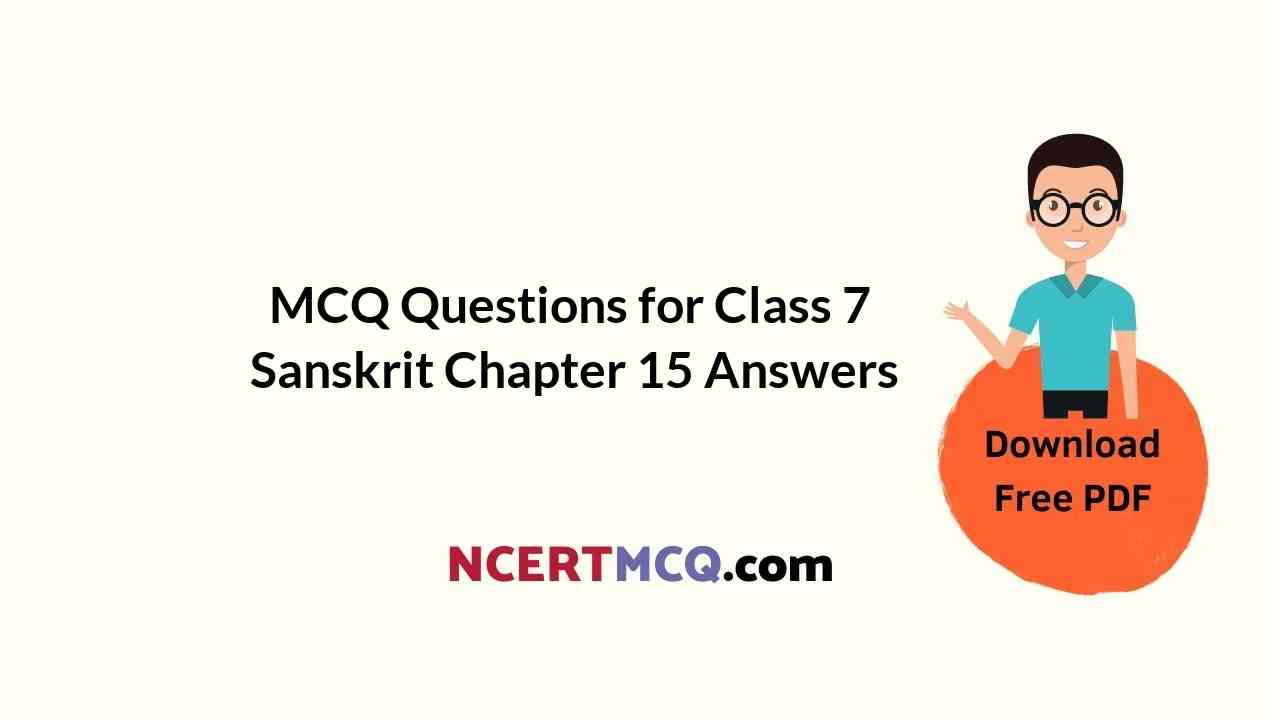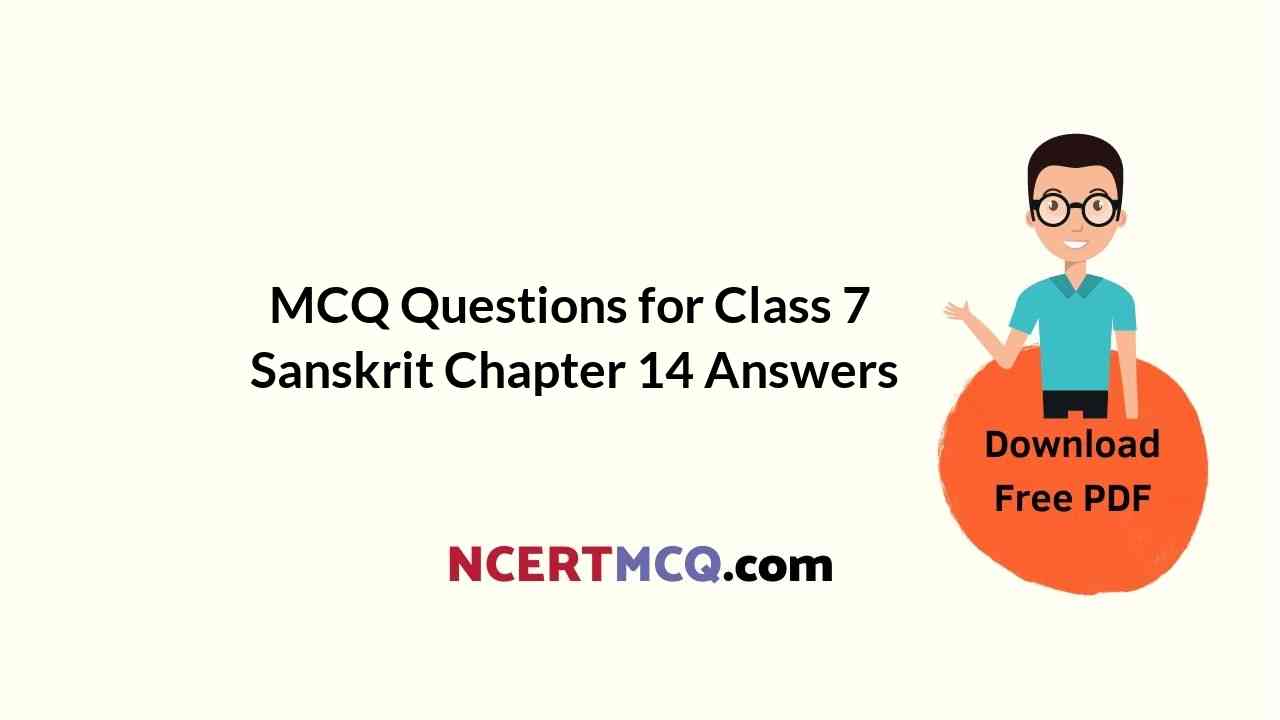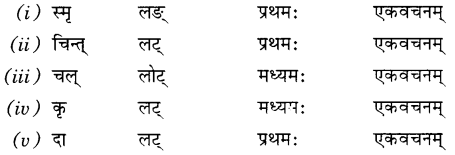Check the below NCERT MCQ Questions for Class 6 English Honeysuckle Chapter 5 A Different Kind of School with Answers Pdf free download. MCQ Questions for Class 6 English with Answers were prepared based on the latest exam pattern. We have provided A Different Kind of School Class 6 English MCQs Questions with Answers to help students understand the concept very well.
MCQ Questions for Class 6 English Honeysuckle Chapter 5 A Different Kind of School with Answers
A Different Kind Of School MCQ Class 6 Question 1.
The school was different because
(a) children scored good marks
(b) children were better behaved
(c) children were taught to be thoughtful
(d) children were running
Answer
(c) children were taught to be thoughtful
A Different Kind Of School MCQ Questions Class 6 Question 2.
The aim of the school was
(a) to teach the three Rs
(b) to make the children responsible citizens
(c) to take them for excursions
(d) to promote continuous evaluation
Answer
(b) to make the children responsible citizens
Class 6 English Chapter 5 MCQ Question 3.
Miss Beam was
(a) authoritative and egoistic
(b) kindly and beautiful
(c) kindly and understanding
(d) a successful lady
Answer
(c) kindly and understanding
Different Kind Of School MCQ Class 6 Question 4.
The author was unhappy as
(a) he saw all unhealthy children
(b) he saw them laughing at all times
(c) few children were not healthy and active
(d) he had lost his mother
Answer
(c) few children were not healthy and active
MCQ Questions For Class 6 English Chapter 5 Question 5.
Children were made
(a) to share the misfortune of others
(b) to clean the garden
(c) to exercise rigorously
(d) to lake the exam
Answer
(a) to share the misfortune of others
MCQ Of A Different Kind Of School Question 6.
The normal children are bandaged overnight
(a) so that they wake up as blind
(b) to make them used to It
(c) so that they can rest
(d) to enable them to see better
Answer
(a) so that they wake up as blind
A Different Kind Of School Class 6 MCQ Question 7.
Other children are given
(a) good treatment
(b) the duty of helping them
(c) a lot of homework
(d) rewards for good work
Answer
(b) the duty of helping them
Ncert Class 6 English Chapter 5 MCQ Question 8.
It is a learning experience
(a) for the abnormal
(b) for the helpers
(c) for the normal
(d) for everyone
Answer
(b) for the helpers
A Different Kind Of School MCQs Question 9.
To bring change in the outlook of the people, one must
(a) Feel difficult
(b) be quiet
(c) take more interest in it
(d) begin telling lies
Answer
Answer: (c) take more interest in it
MCQ Of Different Kind Of School Class 6 Question 10.
The author was heavy hearted before leaving as
(a) he sympathized the disabled
(b) he loved all children
(c) he liked Miss beam
(d) there was still much to learn
Answer
Answer: (d) there was still much to learn
Question 11.
The school is meantime as different as
(a) children come in beautiful uniform
(b) children were better behaved
(c) children were taught to be thoughtful
(d) children were running
Answer
Answer: (c) children were taught to be thoughtful
Question 12.
Miss Beam’s school runs her school with an aim to
(a) to teach the three R’s
(b) to make the children responsible citizen
(c) to take them for excursions
(d) to promote continuous evolution
Answer
Answer: (b) to make the children responsible citizen
Question 13.
Miss Beam an as administrator was
(a) authoritative and egoistic
(b) kind and arrogant
(c) kindly and understanding
(d) strict
Answer
Answer: (c) kindly and understanding
Question 14.
The author was unhappy as
(a) He saw all unhealthy children
(b) he saw them laughing at all times
(c) few children were not healthy and active
(d) the school was untidy
Answer
Answer: (c) few children were not healthy and active
Question 15.
Children were made
(a) to share the misfortune of other
(b) to clean the garden
(c) to exercise rigorously
(d) to take the exam
Answer
Answer: (a) to share the misfortune of other
Question 16.
The normal children are bandaged overnight
(a) wake up as blind
(b) to make them used it to
(c) sleep properly
(d) to enable them to see better
Answer
Answer: (a) wake up as blind
Question 17.
Other children assist them to do
(a) gardening
(b) guide them
(c) a lot of homework
(d) rewards for good work
Answer
Answer: (b) guide them
Question 18.
The schooling was a learning experience
(a) for the abnormal
(b) for the helpers
(c) for the normal
(d) for everyone
Answer
Answer: (b) for the helpers
Question 19.
Crisscross Puzzle
complete the crossword below

Across
5. a state of feeling of great physical or mental distress or discomfort.
7. a long stick with a crosspiece at the top, used as a support under the armpit by a lame person.
9. the quality of being determined; firmness of purpose.
10. a quick or furtive look.
Down
1. happy and cheerful.
2. unfortunate condition or event.
3. very bad or unpleasant.
4. find unexpectedly or during a search.
6. causing great horror or fear.
8. unable to walk without difficulty as the result of an injury affecting the leg or foot.
Answer
Answer:
Across
5. Misery
7. Crutch
9. Determination
10. Peep
Down
1. Jolly
2. Misfortune
3. Awful
4. Discovered
6. Ghastly
8. Lame
(1)
Miss Beam was ail that I had expected – middle – aged. full of authority, yet kindly and understanding. Her hair was beginning to turn grey, and she had the kind of plump figure that Is likely to be comforting to a homesick child. I asked her some questions about her teaching methods, which I had heard were simple.
Question 1.
Miss Beam was
(a) attractive
(b) ugly
(c) what the author expected
(d) social
Answer
(c) what the author expected
Question 2.
Miss Beam seemed
(a) powerful but sympathetic
(b) angry yet kind
(c) middle-aged and wise
(d) philosophical and thoughtful
Answer
(a) powerful but sympathetic
Question 3.
According to the author a homesick child was likely to
(a) fear her
(b) hate her
(c) respect her
(d) trust her
Answer
(d) trust her
Question 4.
The author asked Miss Beam about the way
(a) she lived
(b) she taught
(c) she handled children
(d) the children were taught
Answer
(d) the children were taught
Question 5.
The word understanding here means
(a) wisdom
(b) sense
(c) sympathetic
(d) knowledge
Answer
(c) sympathetic
(2)
This is a very Important part of our system. To make our children appreciate and understand misfortune, we make them share In misfortune too. Each term every child’s one blind day, one lame day, one deaf day. one Injured day and one dumb day.
Question 1.
The speaker in this passage is
(a) Miss Beam
(b) a child
(c) the narrator
(d) the author
Answer
(a) Miss Beam
Question 2.
The Important part of this system is that children
(a) learn well
(b) respect their teacher
(c) share each other’s misfortune
(d) share their happiness
Answer
(c) share each other’s misfortune
Question 3.
Sharing the misfortune makes one
(a) love it
(b) sympathetic
(c) fortunate
(d) unfortunate
Answer
(b) sympathetic
Question 4.
On the blind day, the child
(a) helps the blind
(b) goes to blind school
(c) reads about the blind
(d) is bandaged for a day
Answer
(d) is bandaged for a day
Question 5.
The word appreciate’ here, means
(a) admire
(b) value
(c) esteem
(d) acknowledge
Answer
(b) value
(3)
0h. no t” she exclaimed. That would be cheating! But I had no idea it was so awful to be blind. You cant see a thing. You feel you are going to be hit by something every moment. It’s such a relief just to sit down.”
Question 1.
The passage has been taken from
(a) Taros Reward
(b) A Different Kind of School
(c) Fair Day
(d) Who I Am
Answer
(b) A Different Kind of School
Question 2.
The speaker In the passage Is
(a) a blind girl
(b) an actor
(c) a bandaged girl
(d) a teacher
Answer
(c) a bandaged girl
Question 3.
Being blind has enabled her to
(a) appreciate this misfortune
(b) value her eyes
(c) befoul others
(d) play a game
Answer
(a) appreciate this misfortune
Question 4.
Sitting down is a relief because she
(a) is tired of walking
(b) doesn’t know the way
(c) loves to sit
(d) Is tired of dodging things
Answer
(d) Is tired of dodging things
Question 5.
In the sentence You cant see a thing, ‘& means
(a) one
(b) some
(c) any
(d) every
Answer
(c) any
(4)
And so we walked on. Gradually I discovered that I was ten times more thoughtful than I ever thought I could be. I also realized that if I had to describe people and things to someone else, it made them more Interesting to me. When I finally had to leave, I told Miss Beam that I was very sorry to go.
Question 1.
We’ in this passage refers to
(a) Miss Beam and the narrator
(b) Miss Beam and a blind girl
(c) the narrator and a bandaged girl
(d) the narrator and a blind girl
Answer
(c) the narrator and a bandaged girl
Question 2.
The narrator felt that he had become more
(a) learned
(b) intelligent
(c) healthy
(d) understanding
Answer
(d) understanding
Question 3.
When we have to describe a thing. we are bound to
(a) feel difficulty
(b) be quiet
(c) take more Interest in It
(d) begin telling lies
Answer
(c) take more Interest in It
Question 4.
The author was sorry to leave because
(a) he loved the disabled
(b) he loved all children
(c) he liked Miss Beam
(d) there was stiff much to learn
Answer
(d) there was stiff much to learn
Question 5.
The word gradually means
(a) fast
(b) gratefully
(c) with difficulty
(d) slowly
Answer
(d) slowly
We are providing NCERT MCQ Questions for Class 6 English Honeysuckle Chapter 5 A Different Kind of School with Answers Pdf free download will help you. If you have any queries regarding CBSE Class 6 English A Different Kind of School MCQs Multiple Choice Questions with Answers, drop a comment below and we will get back to you soon.
